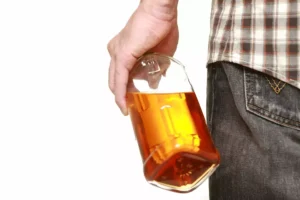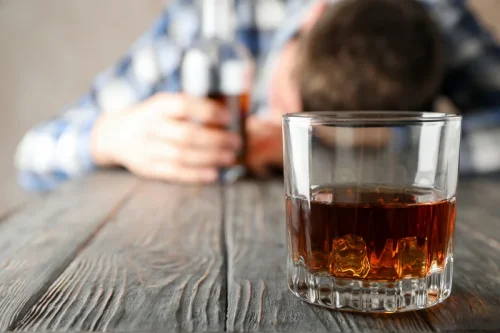While there’s no single cause of depression, most experts believe there’s a combination of biological, social, and psychological factors that contribute to depression risk. Socially stressful and traumatic life events, limited access to resources such as food, housing, and health care, and a lack of social support all contribute to depression risk. Psychologically, we think of how negative thoughts and problematic coping behaviors, such as avoidance and substance use, increase our vulnerability to depression. The initial history and physical examination are crucial to establish the diagnosis and evaluate the severity of alcohol withdrawal. Pertinent information in the medical history includes quantity and duration of alcohol use, duration since last drink, prior history and severity of alcohol withdrawal, and any additional drug use.
How to Recognize and Manage the Symptoms of Post-Acute Withdrawal Syndrome
Though stimulant withdrawal may not always be severe, it can still be unpleasant for someone enduring it—and could complicate their attempts at recovery. Depression is a serious disorder that can take a terrible toll on you and your family. Depression often gets worse if it isn’t treated, resulting in emotional, behavioral and health problems that affect every area of your life. Hi, I’m Dr. Craig Sawchuk, a clinical psychologist at Mayo Clinic. Whether you’re looking for answers for yourself, a friend, or loved one, understanding the basics of depression can help you take the next step. It enhances the effect of inhibitory neurotransmitters while down-regulating excitatory neurotransmitters.
OTHER MEDICATIONS
- Anticonvulsants for the treatment of alcohol withdrawal syndrome and alcohol use disorder.
- Alcohol, a CNS depressant, stimulates the GABAergic system and, in acute intoxication, causes a range of clinical manifestations such as disinhibition, euphoria, and sedation.
- If you’re prescribed a medication from this class of drugs talk with your doctor about the risks before taking them and always follow the doctor’s instructions.
- A counselor can help someone prepare for life after withdrawal and provide support as they navigate quitting drinking.
- The third stage of alcohol withdrawal symptoms usually lasts for 2 to 3 days.
Alcohol withdrawal syndrome is a set of symptoms that people can have when they stop drinking. Often it occurs in people who have had an alcohol abuse problem for weeks, months, or years. People who only drink once in a while rarely have withdrawal. People who have gone through withdrawal before are more likely to have symptoms each time they quit drinking. The symptoms of alcohol withdrawal delirium can include agitation and hallucinations. The exact timeline for alcohol withdrawal varies from person to person.

Treatment algorithm

You might find it helpful to take note of your symptoms and possible triggers. This can help you figure out what triggers or worsens your symptoms. In some cases, these sleep disturbances — which may include strange, vivid dreams — persist for weeks or even months. The above-mentioned review states that there’s a lack of research on PAWS from benzodiazepines, but that it can persist alcohol withdrawal syndrome symptoms for 6 to 12 months — in some cases, even years after stopping benzodiazepine use. Antidepressants, including selective serotonin reuptake inhibitors (SSRIs) and serotonin noradrenaline reuptake inhibitors (SNRIs), can be an effective way to manage your mood. Make a gift now and help create new and better solutions for more than 1.3 million patients who turn to Mayo Clinic each year.
- If you notice any of the symptoms of these conditions, it’s important to get medical care immediately.
- It enhances the effect of inhibitory neurotransmitters while down-regulating excitatory neurotransmitters.
- And they can connect you to resources to help you continue your recovery journey.
- If you are sensitive to alcohol or seizure medicines, you may find the combination even worse.
- In these cases, you’re likely to receive one of the various medications, such as benzodiazepines, the most successful in these cases.
- Of these, 16,532 patients had discontinued from an antidepressant, whereas the remaining 4,470 had discontinued from a placebo.
- For example, benzodiazepines might be effective for helping people with alcohol withdrawal syndrome, but they won’t be appropriate for someone who has misused benzodiazepines in the past.

The second group helps measure a nocebo effect among unmedicated patients, separating psychological from purely chemical withdrawal effects. Feeling jumpy or restless during the first days or weeks after quitting is normal. Just like your mind gets irritated without nicotine at first, the rest of your body can, too.

Our alcohol self-assessment can help you identify if the amount you drink could be putting your health at serious risk. If you experience withdrawal symptoms, it’s one sign that you’re becoming dependent on alcohol. And if you’re experiencing these symptoms several days a week, it’s very likely you are already dependent on alcohol.
Call your local emergency number (911 in the US), or have someone else call if:
For those with alcohol use disorder, withdrawal is just the first (but very important) step on a long journey to recovery. These first few weeks are critical because they are when the risk of relapse is highest. Individuals should be prepared to be uncomfortable during this period and have medical help available if needed.
